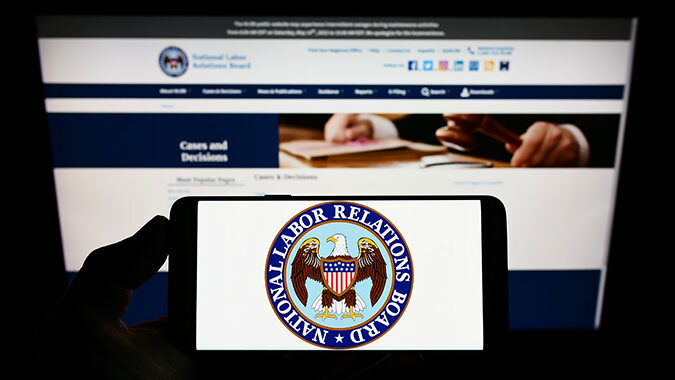Requiring workers to sign employment or severance agreements that prevent them from joining competing companies is usually illegal except under narrow circumstances, the National Labor Relations Board General Counsel Jennifer Abruzzo said this week.
In a memo to NLRB regional directors on Tuesday, Abruzzo said broad noncompete agreements violate federal labor laws because a worker’s ability to advocate for higher wages or better working conditions is undermined if he or she is unable to easily switch jobs.
Such contracts “could reasonably be construed by employees to deny them the ability to quit or change jobs by cutting off their access to other employment opportunities that they are qualified for based on their experience, aptitudes, and preferences as to type and location of work,” Abruzzo said.
“It is unlikely an employer’s justification would be considered reasonable in common situations where overbroad noncompete provisions are imposed on low-wage or middle-wage workers who lack access to trade secrets or other protectible interests ...” Abruzzo wrote.
An employer’s “desire to avoid competition from a former employee is not a legitimate business interest,” Abruzzo said.
“In my opinion, business interests in retaining employees or protecting special investments in training employees are unlikely to ever justify an overbroad non-compete provision because U.S. law generally protects employee mobility and employers may protect training investments by less restrictive means, for example, by offering a longevity bonus,” Abruzzo wrote.
The memo asks NLRB lawyers to refer cases of unlawful noncompete agreements to her office.
This is the latest attempt by the federal regulators to reign in the practice of using noncompete agreements. In January, the Federal Trade Commission proposed a rule that would ban noncompete agreements. That proposal is still pending.
In April, NJBIA Vice President of Government Affairs Alexis Bailey warned the FTC in a letter that a total ban of noncompete will limit the ability of employers to protect their legitimate business interests. Bailey also noted that NJBIA has long supported banning noncompete agreements for low-wage workers when discussing policies regarding restrictive covenants.
“Our organization has suggested restricting the use of noncompete agreements on anyone making less than the statewide average weekly wage,” she said.
“This figure is recalculated each year by the New Jersey Department of Labor and Workforce Development and is roughly $70,000 this year. A more tailored measure such as this would address the concerns the FTC has regarding the use of unenforceable noncompetes being placed on workers,” Bailey said.




